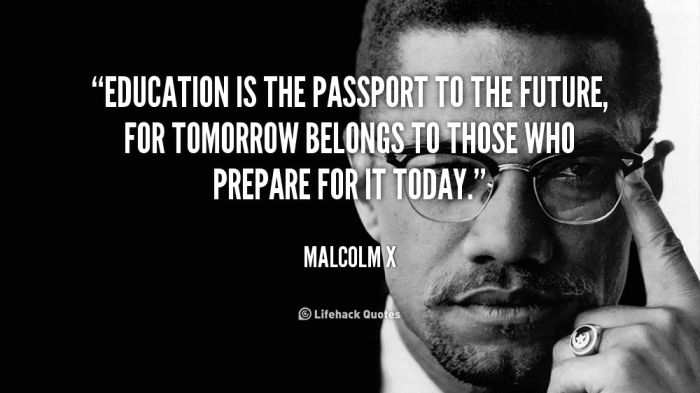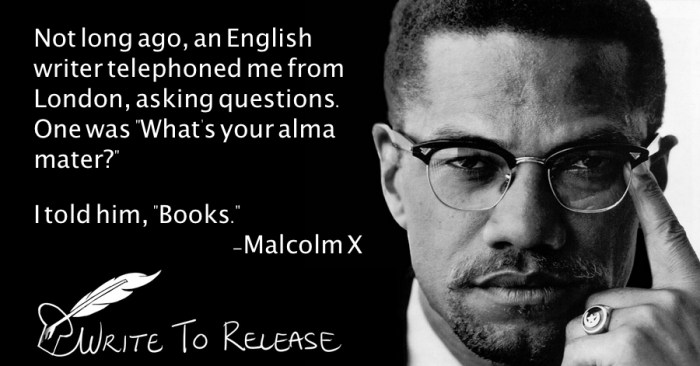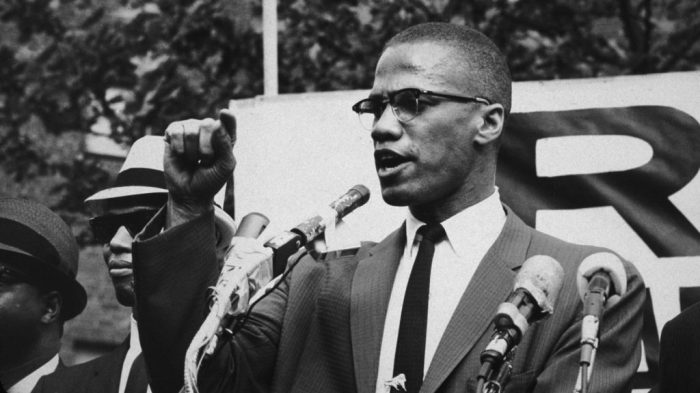Literacy behind bars by malcolm x – In the realm of criminal justice, the transformative power of literacy takes center stage in Malcolm X’s groundbreaking work, Literacy Behind Bars. This profound narrative explores the transformative impact of education on incarcerated individuals, challenging systemic inequalities and igniting a path towards rehabilitation and social justice.
Through literacy programs, Malcolm X illuminates the potential for cognitive development, critical thinking, and self-empowerment among those behind bars. His unwavering belief in the transformative power of education serves as a beacon of hope, inspiring countless individuals to reclaim their lives through the written word.
Introduction

Literacy plays a pivotal role in the context of incarceration, empowering incarcerated individuals with the skills and knowledge necessary for rehabilitation and successful reintegration into society.
Malcolm X, a renowned civil rights activist and former inmate, recognized the transformative power of literacy and advocated for its accessibility within correctional facilities.
Literacy Initiatives Behind Bars

Challenges and Barriers
- Limited access to educational resources and materials
- High rates of illiteracy and low educational attainment among incarcerated populations
- Understaffing and lack of funding for literacy programs
- Negative attitudes and stigma associated with literacy
Successful Initiatives
Various literacy programs have been implemented in correctional facilities with promising results, including:
- Prison Education Programs (PEP): Provide access to high school equivalency diplomas and college courses
- Project READ: Offers one-on-one tutoring and group literacy instruction
- Books Behind Bars: Donates books and promotes reading within prisons
The Role of Education in Rehabilitation: Literacy Behind Bars By Malcolm X

Cognitive Development and Critical Thinking, Literacy behind bars by malcolm x
Literacy enhances cognitive abilities, critical thinking skills, and problem-solving capacities.
Self-Empowerment
Education empowers incarcerated individuals with knowledge and skills that foster self-confidence and a sense of purpose.
Reduced Recidivism
Research has consistently shown a strong correlation between education and reduced recidivism rates.
Literacy and Social Justice

Systemic Inequalities
Low literacy rates among incarcerated populations reflect systemic inequalities in education, housing, and employment opportunities.
Addressing Root Causes
To promote social justice, it is crucial to address the underlying factors that contribute to illiteracy in incarcerated populations.
Policy Recommendations
- Increased funding for literacy programs
- Expansion of educational opportunities within correctional facilities
- Elimination of barriers to education for incarcerated individuals
Quick FAQs
What is the significance of literacy in the context of incarceration?
Literacy empowers incarcerated individuals with essential life skills, fosters cognitive development, and promotes self-empowerment, contributing to successful reintegration into society.
How does literacy contribute to rehabilitation?
Literacy enhances critical thinking, problem-solving abilities, and self-awareness, equipping incarcerated individuals with the tools to make positive choices and reduce recidivism.
What are the challenges faced by incarcerated individuals in accessing educational resources?
Limited access to books, lack of qualified educators, and inadequate funding pose significant barriers to literacy acquisition behind bars.